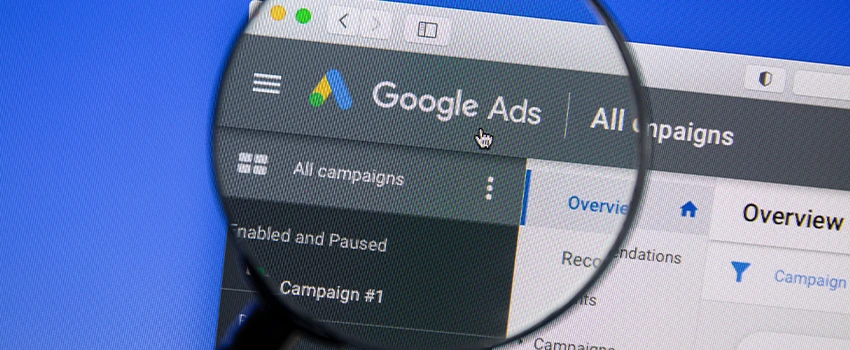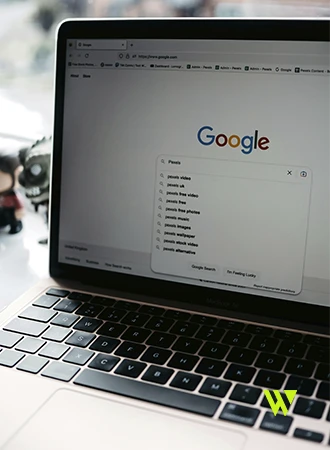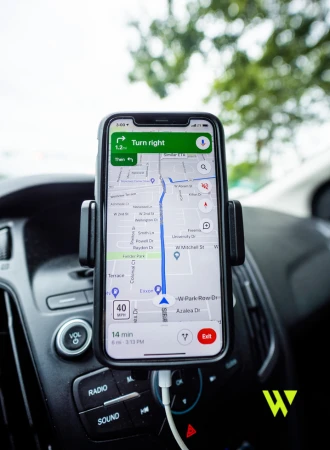Digital Marketing April, 2024
Sponsored Ads with Google Ads: How to Attract More Customers

In the world of digital marketing, Google Ads stands out as a powerful tool for boosting your business. With millions of searches carried out on Google every day, advertising on this platform offers a unique opportunity to reach your target audience at the exact moment they are looking for your products or services. But what is Google Ads and how can it benefit your business??

What is Google Ads?
Google Ads, formerly known as Google AdWords, is Google's online advertising platform. It allows you to create paid ads that appear in Google search results, on Google's partner sites in the display network, and on YouTube. With Google Ads, you can target your audience based on keywords, location, interests, demographics, and other relevant criteria.
Why is Google Ads So Important?
- Immediate Visibility: Unlike SEO, which takes time to generate results, Google Ads provides immediate visibility for your business. Your ads can start appearing in search results within hours of launching a campaign.
- Precise Targeting: Google Ads allows you to target your audience with incredible precision. You can direct your ads to people searching for specific keywords, located in certain geographic areas, with particular interests, or fitting specific demographic data.
- Total Budget Control: With Google Ads, you set your own budget and only pay when someone clicks on your ads. This means you have complete control over your spending and can adjust your budget at any time.
- Measurable Results: Google Ads offers detailed analytics tools that allow you to track the performance of your campaigns in real time. You can see how many people have viewed your ads, how many have clicked on them, the cost per click, and the return on investment.
- Flexibility and Adaptability: Google Ads enables you to create different types of campaigns to achieve various goals, such as increasing website traffic, generating leads, boosting sales, or promoting your brand. You can also adjust your campaigns at any time to optimize your results.
Statistics That Prove the Power of Google Ads
- Businesses make an average of €2 in revenue for every €1 spent on Google Ads. (Google Economic Impact Report)
- Google search network ads can increase brand awareness by up to 80%. (Google)
- 65% of all clicks on paid ads are made by users intending to make a purchase. (WordStream)
- 43% of people click on an ad because it mentions a product they searched for on Google. (WordStream)
- Google holds 92% of the global search engine market share. (Statista)
Types of Google Ads Campaigns
- Search Campaigns: Your ads appear in Google search results when people search for keywords related to your business.
- Display Campaigns: Your ads appear on Google's display network partner sites, such as blogs, news portals, and e-commerce sites.
- Video Campaigns: Your ads appear on YouTube, before, during, or after videos.
- Shopping Campaigns: Your product ads appear on Google Shopping, a Google price comparison service.
- App Campaigns: Your ads promote your mobile app in Google search, YouTube, Google Play, and other apps.
- Discovery Campaigns: Your ads appear in the Google Discover feed, YouTube, and Gmail, reaching users based on their interests.
- Local Campaigns: Your ads appear to people near your physical store or searching for local businesses.
- Smart Campaigns: Automated campaigns that use machine learning to optimize your ad performance.
Special Tips to Captivate with Google Ads
- Long-Tail Keywords: Use long-tail keywords, which are more specific and less competitive, to reach a more qualified audience and reduce cost per click.
- Compelling Ads: Create ads with compelling headlines and descriptions that highlight the benefits of your products or services. Use relevant keywords and a clear, direct call to action.
- Relevant Landing Pages: Ensure your landing pages are relevant to your ads and provide a good user experience.
- Ad Extensions: Use ad extensions such as sitelinks, call extensions, and location extensions to add more information to your ads and make them more appealing.
- Remarketing: Use remarketing to show ads to people who have visited your site or interacted with your ads before. This increases conversion chances by targeting people who have already shown interest in your business.
- A/B Testing: Conduct A/B tests to compare different versions of your ads and identify which performs better. Test different headlines, descriptions, images, calls to action, and landing pages.
- Custom Audiences: Create custom audiences based on demographic data, interests, and customer behaviors. This allows you to target ads to people who are more likely to be interested in your products or services.
- Mobile Optimization: Ensure your ads and landing pages are optimized for mobile devices. Most Google searches are done on mobile devices, so it's important to ensure your ads display correctly on smaller screens.
- Conversion Tracking: Use conversion tracking to measure the success of your campaigns. Set your conversion goals and track how many conversions are generated by your ads.
- Smart Campaigns: If you have limited time or experience with Google Ads, try Smart Campaigns. They are easier to set up and manage, using machine learning to optimize your ad performance.
How to Create an Effective Google Ads Campaign
- Define Your Goals: What do you want to achieve with your campaign? Increase website traffic? Generate leads? Boost sales?
- Define Your Target Audience: Who are the people you want to reach with your ads? What are their interests, needs, and online behaviors?
- Keyword Research: Identify the keywords your target audience uses to search for products or services like yours.
- Create Your Ads: Write compelling headlines and descriptions, use relevant keywords, and include a clear, direct call to action.
- Set Your Budget: Determine how much you're willing to spend on your campaign and set a daily or monthly budget.
- Launch Your Ads: Launch your campaign and closely monitor its performance.
- Optimize Your Campaign: Make adjustments to your campaign based on the results you're getting. Test different keywords, ads, and settings to improve your campaign performance.
Google Ads is a powerful tool to reach your target audience, increase your business visibility, and boost your sales. By creating effective campaigns, targeting your audience, using relevant keywords, and optimizing your ads, you can achieve significant results and build a successful online business.









